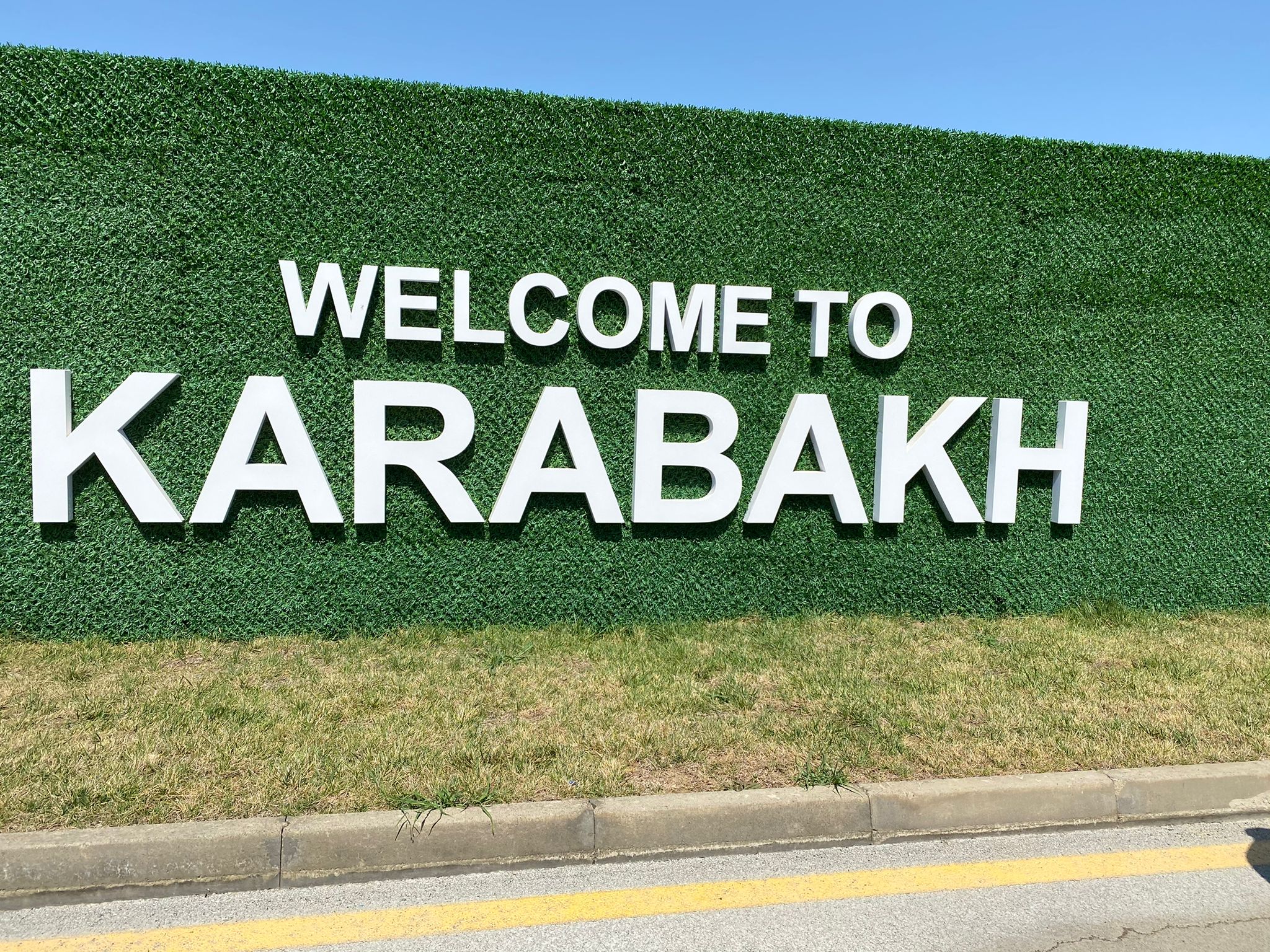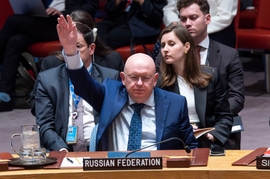Officials from Azerbaijan met on Wednesday representatives of the ethnic Armenians residing in Azerbaijan’s Karabakh (Garabagh) region. The meeting was held at the headquarters of the temporary Russian peacekeeping mission located in the town of Khojaly, according to media reports.
Azerbaijani parliament’s member Ramin Mammadov represented Azerbaijan during the meeting, which was also attended by experts from Azerbaijan’s Ecology and Natural Resources Ministry, the State Service for Property Issues under the Ministry of Economy, as well as officials from the AzerGold Company.
According to the media report, during the meeting, preliminary discussions were held on the reintegration of the Armenian residents of the Karabakh region into Azerbaijani society in line with the Constitution and laws of Azerbaijan.
The topic of environmental monitoring in two mineral fields that were unlawfully exploited by mining companies without Azerbaijan’s consent was also brought up during the discussions.
The meeting participants agreed to continue contacts for further discussions. According to information obtained by Baku-based Caliber.Az from diplomatic sources, Azerbaijan’s cities of Barda, Ganja, and Aghdam are being considered as possible venues for the next meetings.
In the meantime, the European Union (EU) Special Representative for the South Caucasus and the crisis in Georgia, Toivo Klaar, said the meeting in Khojaly between the Azerbaijani representatives and Karabakh Armenians was “encouraging.”
“Good that discussions appear to have focused both on immediate concerns and broader issues,” Klaar wrote on Twitter on Wednesday.
The meeting followed an announcement by President Ilham Aliyev in Munich on February 18 that Azerbaijan was ready to start communications with the Armenian population of the Karabakh region. According to the president, the Armenians of the Karabakh region are citizens of Azerbaijan and the discussions should be held “with those representatives of the Armenian community who lived, who were born, and who lived in Karabakh throughout their life.”
Armenia and Azerbaijan had long been at odds over the latter’s Karabakh region. Following the Soviet Union’s dissolution in 1991, Armenia launched a military campaign against Azerbaijan that lasted until a ceasefire deal in 1994. As a result, Armenia occupied 20 percent of Azerbaijan’s internationally recognized territories. Over 30,000 ethnic Azerbaijanis were killed, and one million were expelled from those lands in a brutal ethnic cleansing campaign carried out by Armenia.
On September 27, 2020, the decades-old conflict between the two countries spiraled after Armenia’s forces deployed in occupied Azerbaijani lands shelled military positions and civilian settlements of Azerbaijan. During counter-attack operations, Azerbaijani forces liberated over 300 settlements, including the cities of Jabrayil, Fuzuli, Zangilan, Gubadli, and Shusha, from a nearly 30-year-long illegal Armenian occupation. The war ended in a statement signed on November 10, 2020, under which Armenia also returned the occupied Aghdam, Kalbajar, and Lachin districts to Azerbaijan.
According to Azerbaijani official data, up to 25,000 ethnic Armenians live in certain parts of Azerbaijan’s Karabakh region, temporarily monitored by the Russian peacekeeping contingent. Armenia demanded special status for this area, while Baku rejected these illegal claims, considering them a threat to the territorial integrity of Azerbaijan.
Since late 2020, Azerbaijani authorities have been calling on ethnic Armenians residing in the Karabakh region to eliminate anti-Azerbaijan propaganda and take steps to start reintegration into Azerbaijani society.







 Azerbaijan and Armenia started the process of demarcation of their border on Tuesday, with the installation of the first border markers based on ge...
Azerbaijan and Armenia started the process of demarcation of their border on Tuesday, with the installation of the first border markers based on ge...
 President Aliyev emphasized the critical role of the North-South Transport Corridor in fostering transport cooperation between Azerbaijan and Russi...
President Aliyev emphasized the critical role of the North-South Transport Corridor in fostering transport cooperation between Azerbaijan and Russi...
 Iran and Pakistan have signed eight cooperation documents in various fields, and agreed to strengthen ties to fight terrorism in the region.
Iran and Pakistan have signed eight cooperation documents in various fields, and agreed to strengthen ties to fight terrorism in the region.
 As the conflict between Ukraine and Russia escalates, the strategic importance of Kharkiv, Ukraine's second-largest city, has come sharply into focus.
As the conflict between Ukraine and Russia escalates, the strategic importance of Kharkiv, Ukraine's second-largest city, has come sharply into focus.
 Iranian President Ebrahim Raisi expressed Tehran’s readiness to participate in significant development projects in Sri Lanka during the inauguratio...
Iranian President Ebrahim Raisi expressed Tehran’s readiness to participate in significant development projects in Sri Lanka during the inauguratio...



